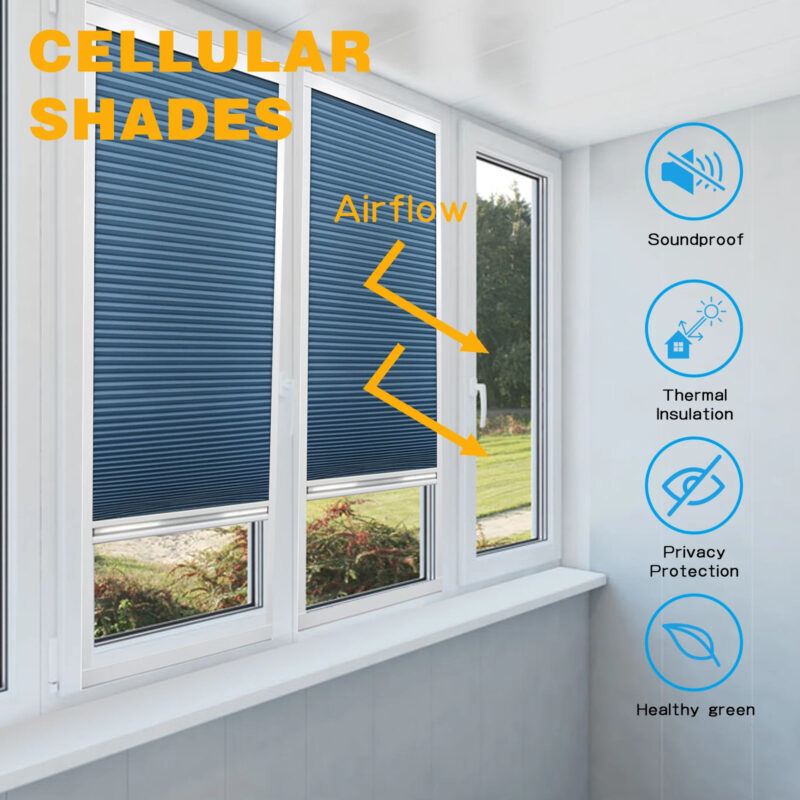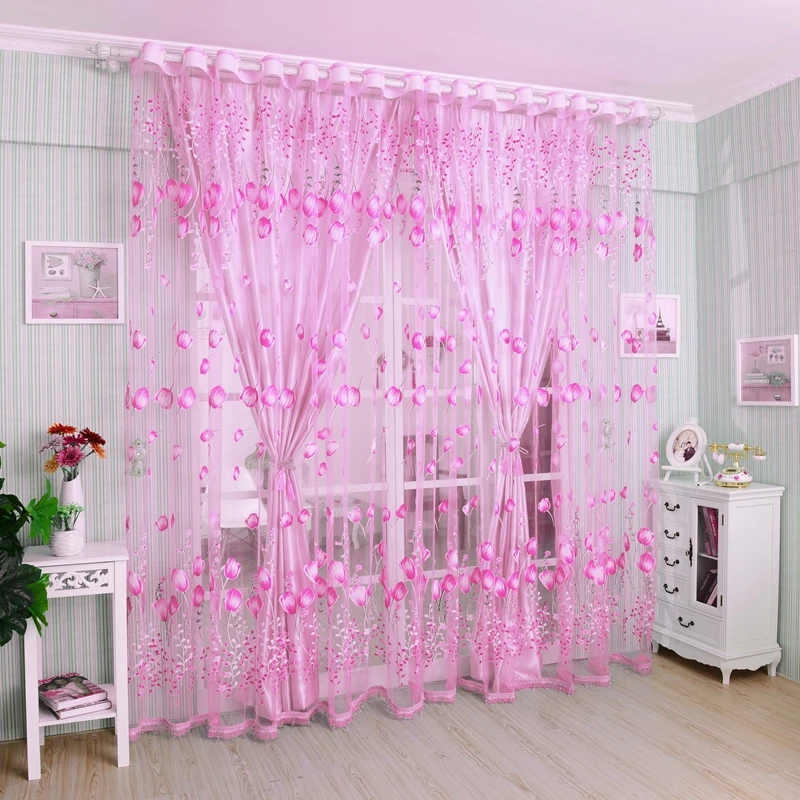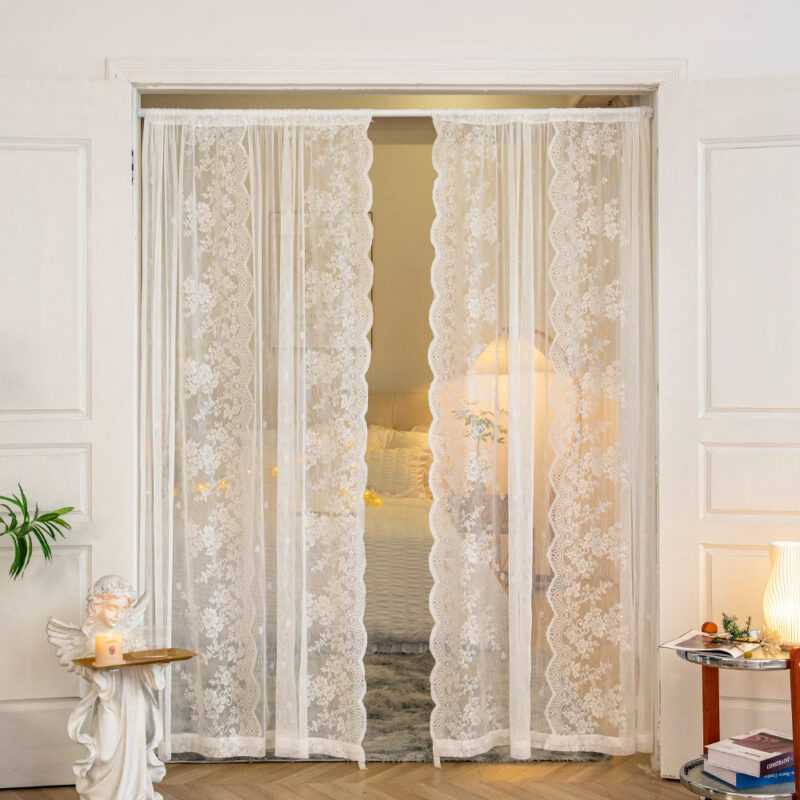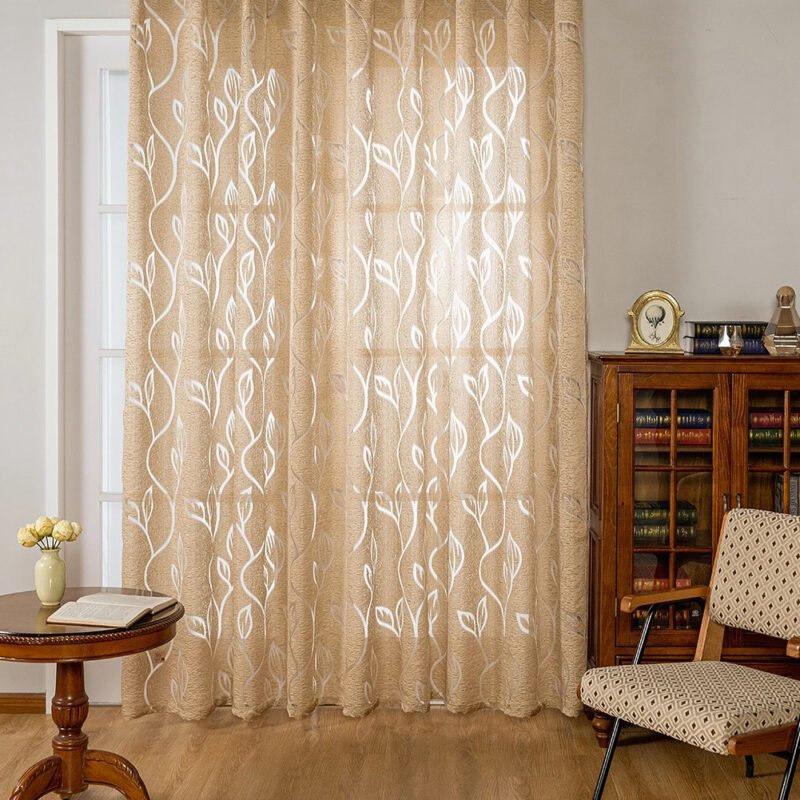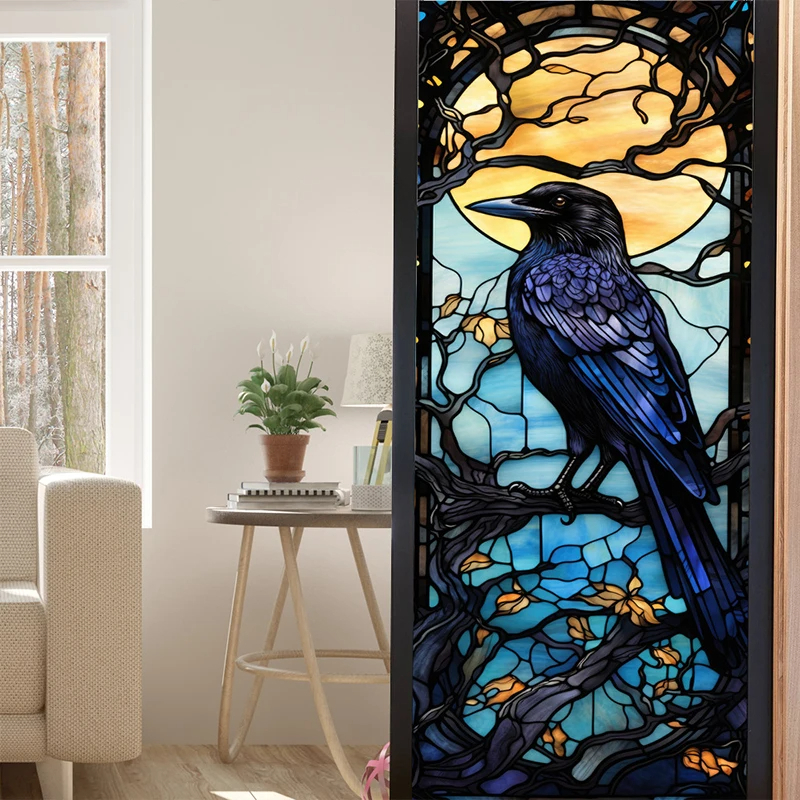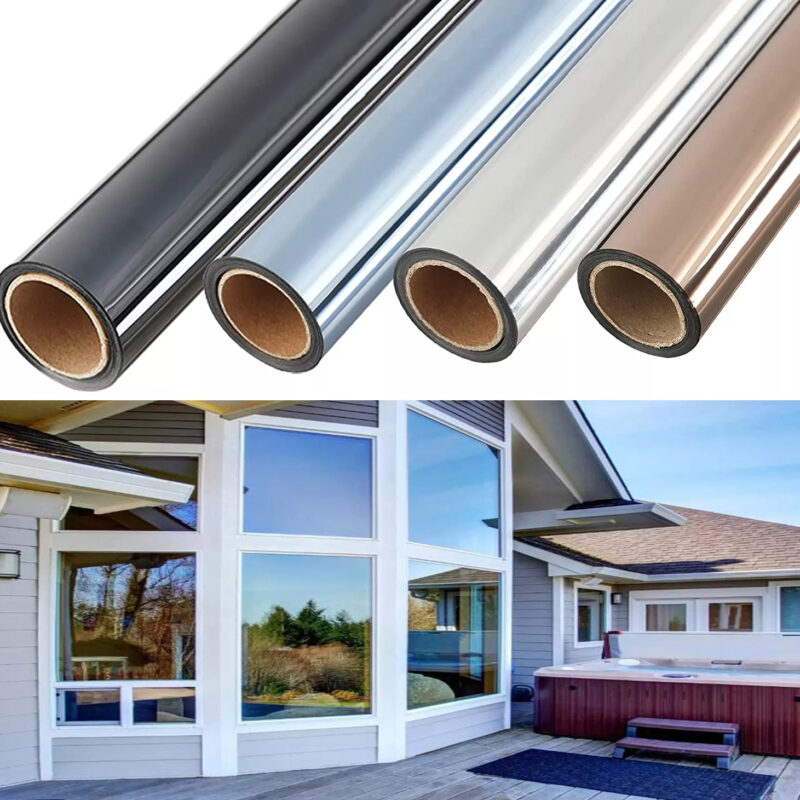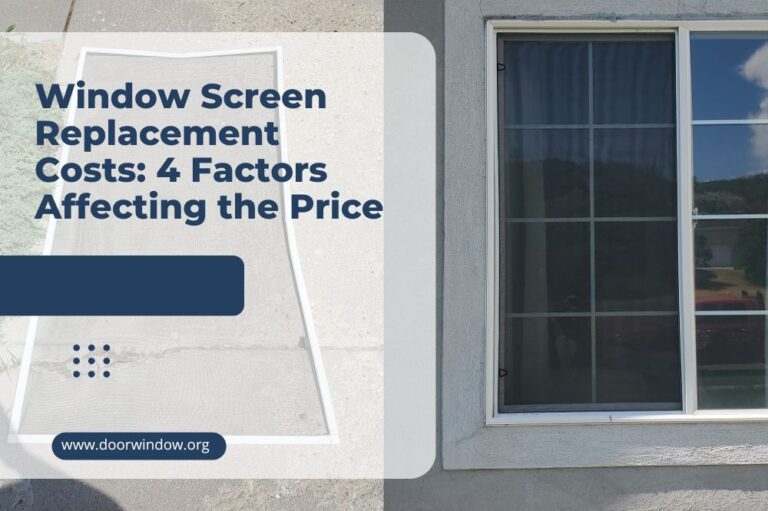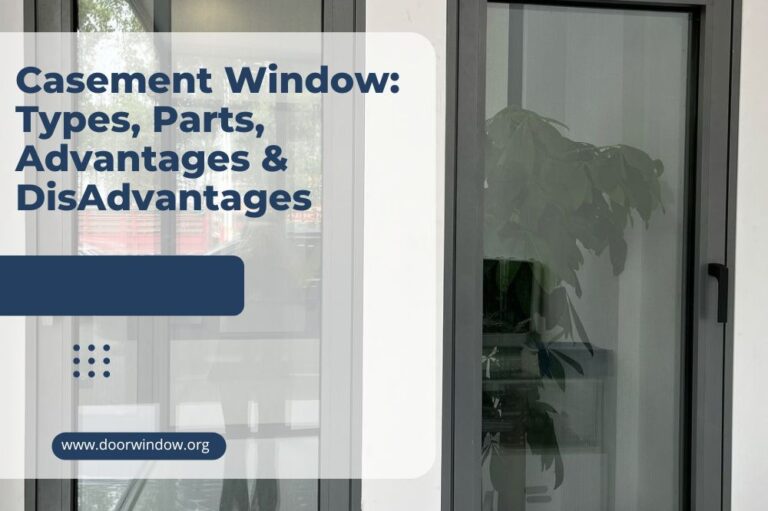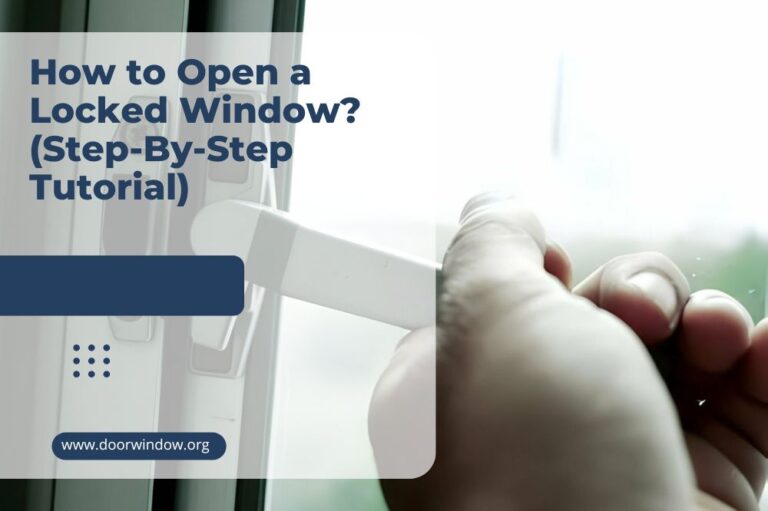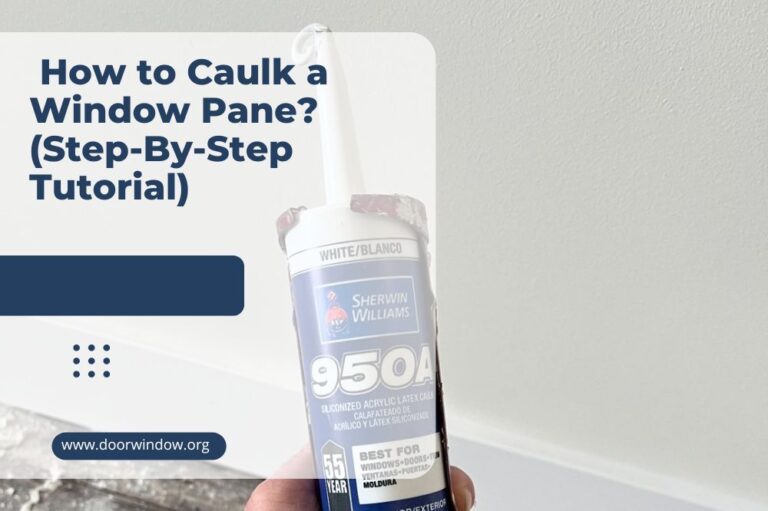Mobile Home Windows (An Ultimate Guide)
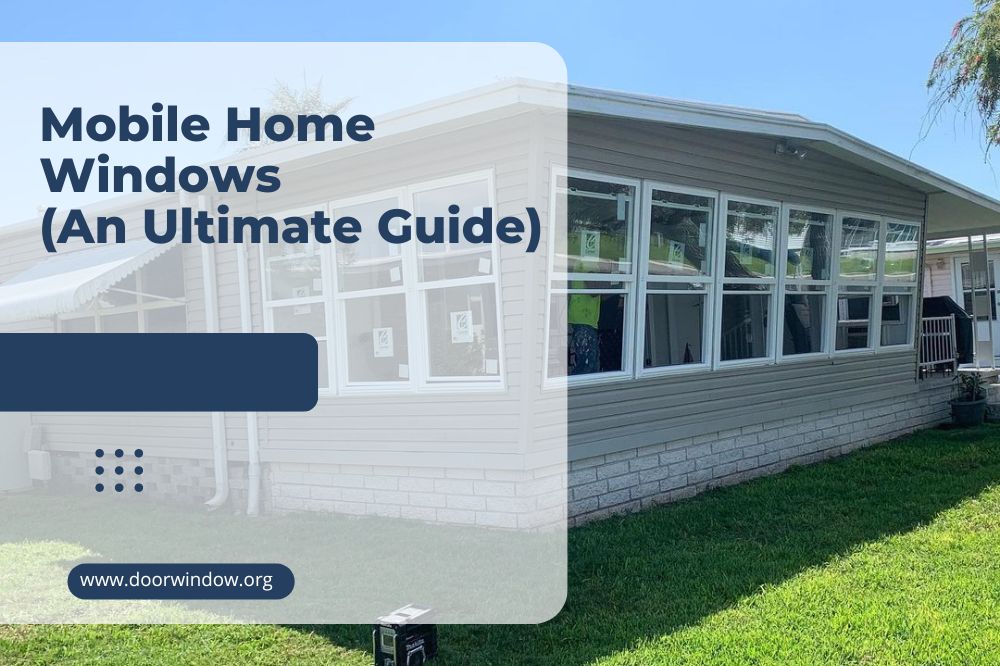
Many people who live in mobile homes have a lot of questions about windows. They want to know what kind of windows they should have, how big they should be, and the best way to maintain them. The good news is that there are some very definitive answers to these questions for mobile homeowners. Let’s take a look at them now!
Window Types and Features Best Suited for Mobile Homes
Not all window types are suited for mobile homes. In fact, some are a complete no-no. Here are the window types and features that are best suited for mobile homes:
- Single or double-hung windows. These windows open vertically, from the bottom up. They’re a good choice for mobile homes because they’re less likely to blow open in high winds.
Fixed windows. as their name implies, these windows don’t open. They’re a good choice for mobile homes because they don’t require any extra maintenance or care.
- Casement. These are hinged at the top and swing outward when opened. They are often used on older mobile homes that have been renovated with new siding materials and roofing materials.
- Slider windows. These windows open horizontally or vertically. They’re a good choice for mobile homes because they provide good ventilation and airflow.
- Jalousie windows. They are louvered windows with a series of horizontal slats that can be closed or opened to control the amount of light, airflow, and privacy you want in your home.
- Awning windows. A type of window feature that’s attached to the top of a mobile home. It typically has slats or louvers, which can be opened or closed. The purpose of the awning is to provide shade and protection from rain, wind, and other outside elements.
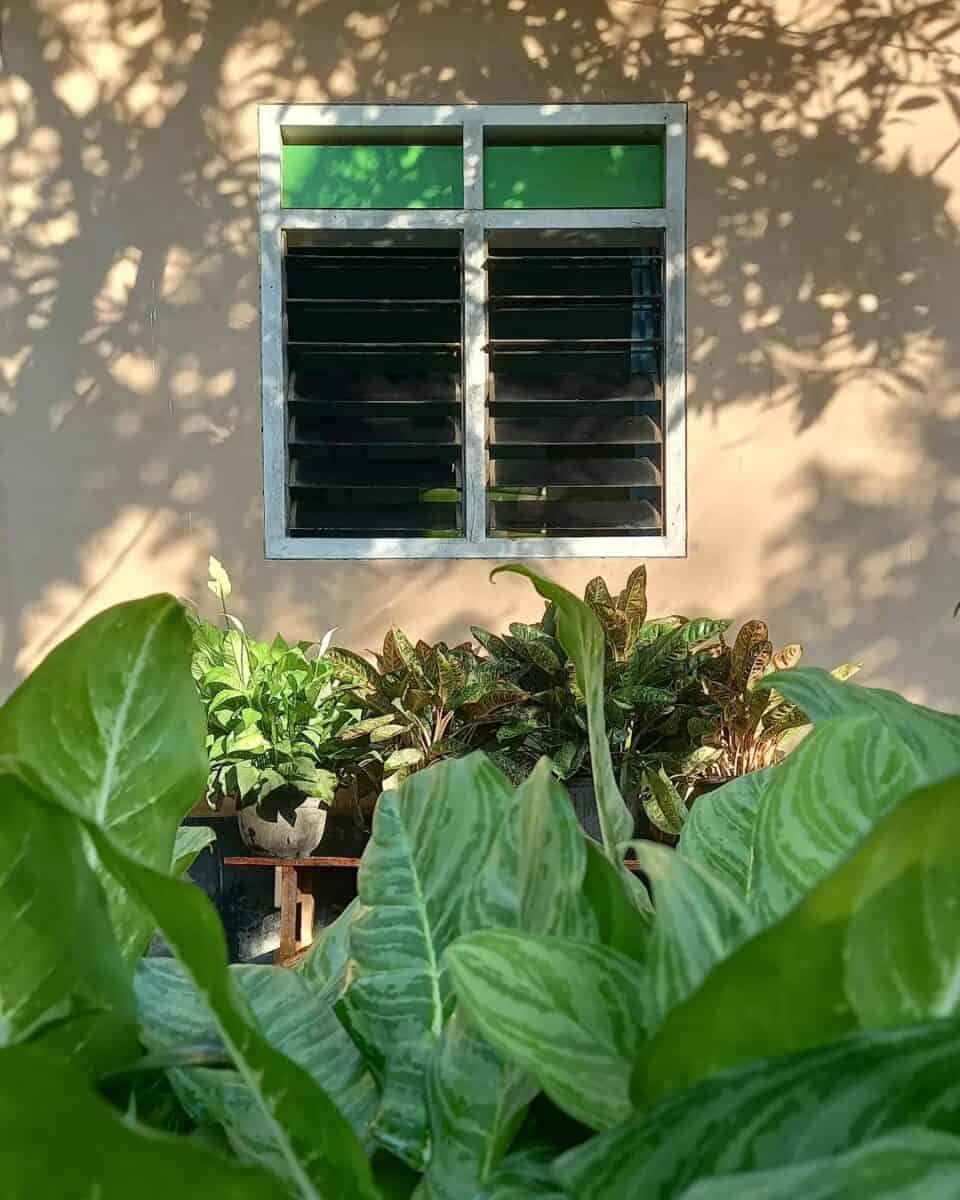
Mobile Home Windows Materials
- Glass: Glass is one of the most popular materials used in mobile homes. This is because it’s easy to clean, durable, and lightweight. However, glass does break easily if not properly installed or maintained.
- Aluminum: Aluminum is another popular choice for mobile home windows. It’s lightweight, durable, and easy to maintain. It also resists corrosion from saltwater exposure which may be common in coastal areas where many people live in mobile homes.
- Vinyl: Vinyl is another popular option for mobile homes because it’s affordable and easy to install—just roll it out onto the frame! You can also choose between clear and tinted versions depending on your needs (such as privacy).
How to Measure a Mobile Home Window
To measure your mobile home window, you’ll need to do a little math and some measuring. Luckily it’s not too hard!
Step 1: Measure the width of your window in inches. This is the widest part of the window.
Step 2: Measure the height of your window in inches. This is the tallest part of the window.
Step 3: Subtract two inches from each measurement (width and height). You’ll get numbers between 1 and 3 inches long or smaller than 2 inches long if you’re measuring a very narrow or tall window.
For example, if you measured a mobile home window that was 10 inches wide and 15 inches tall, you’d subtract two inches from each measurement: 10 minus 2 = 8; 15 minus 2 = 13. Your final measure would be 8 inches wide by 13 inches tall—so now you know exactly how big this particular window is!
For visual presentation, you can check out the video on getting the correct sizes of your windows below.
Standard Size For Mobile Home Windows
The standard size for mobile home windows depends on the model of your home. Different models have different window sizes, and even the same model can have different window sizes depending on where it was made.
Mobile homes’ most common window size is 24 inches by 36 inches. This site is so popular because it’s large enough to let in plenty of natural light but small enough to fit into almost any space.
If you want to install a larger window, you can choose from several options: 28 inches by 48 inches, 30 inches by 60 inches, or 36 inches by 72 inches. The larger sizes are more expensive than smaller ones because they take up more space on your wall and require more wood in their construction.
Installing New Mobile Home Windows
Installing new mobile home windows is an easy DIY project that can improve your home’s appearance and energy efficiency. You may need to use a tape measure to measure the window and make sure it will fit into place before you begin installing, and after that, here’s what you should do:
- Check to see if the window opens and closes properly. If it doesn’t, adjust the hinges or latch until it does and make sure they are securely fastened.
- Make sure the frame fits snugly around each side of your new mobile home window so that there are no gaps between the wall and frame at any point in time during installation (you can use wood glue or caulking if necessary).
- After you have installed all four sides of your new mobile home window, check again for gaps; if there are any visible ones between each side or corner of where frames meet with walls or floors (and there shouldn’t be).
- Add more caulk until everything is level and secure again before continuing with installation procedures for interior trim pieces, such as drywall tape strips or trim molding types for baseboard moldings. These types provide additional support for added stability against vibrations caused by windy conditions outdoors, so no one has trouble sleeping comfortably inside afterward!
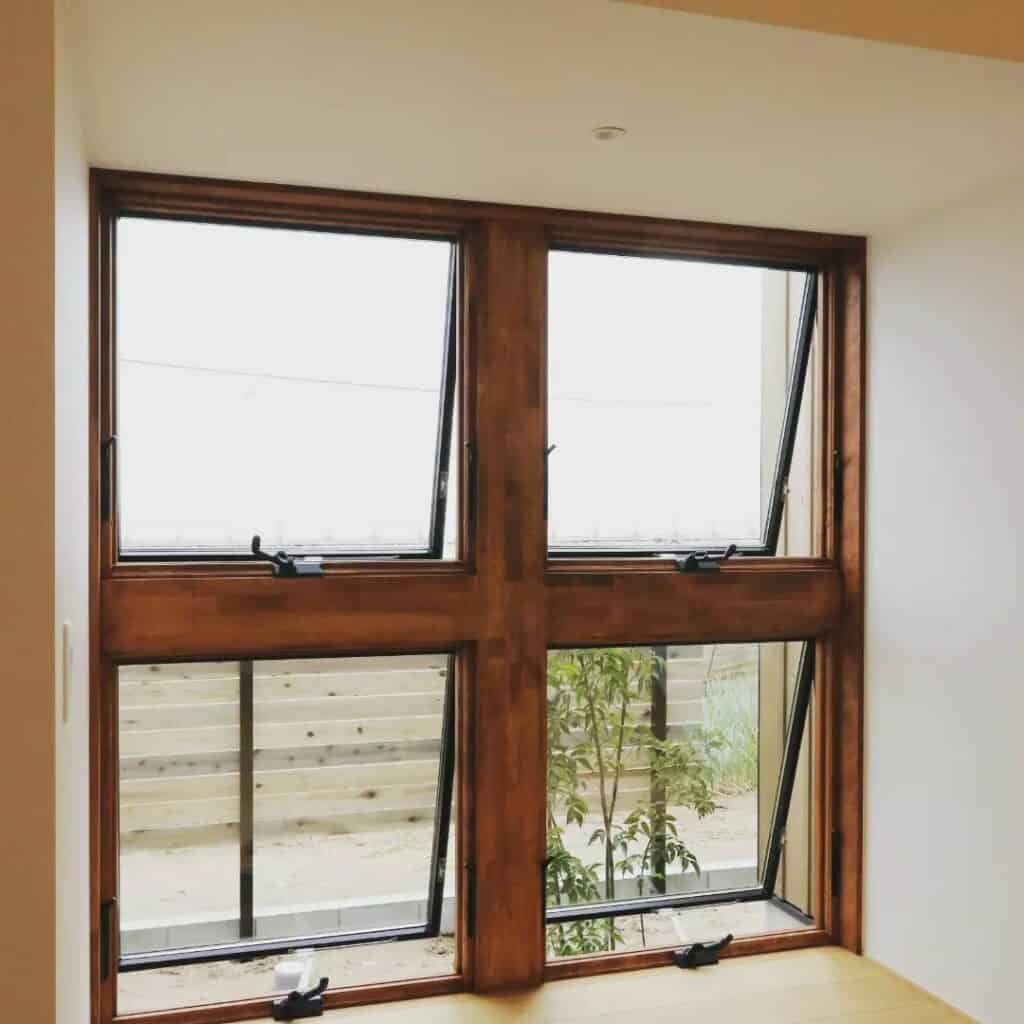
Replacing Mobile Home Windows
- If you need clarification on your measurement, you can call a professional window contractor to come out and take measurements for the mobile home replacement windows. This will ensure that you get the right size of window for your mobile home, and it’s important to have an expert measure your current windows so they can be replaced with a similar size.
- Make sure the mobile home is level and stable before attempting to remove any windows. If it isn’t level, you could end up with a crooked-looking window installation if you don’t do this step first!
- Removed damaged or old window sills from the mobile home, using a hammer drill with a masonry bit to drill into them and then prying them out with a claw hammer or crowbar. You can also use a utility knife or chisel if necessary—be careful not to scratch or damage anything else on your mobile home while doing this!
- Replace sills with new ones made specifically for mobile homes to ensure proper installation and durability over time (these can usually be bought at any hardware store along with other window parts).
- Install new windows into place by following the instructions included with them as well as any additional instructions. Most manufacturers provide detailed instructions on how much pressure should be applied when installing each pane.
Likewise, if you need to check whether or not you’re up for replacing your mobile home’s windows, it’s important that you consult with a professional first.
How Much Do Mobile Home Windows Cost?
Mobile home windows are typically less expensive than regular windows because they’re usually made from aluminum or vinyl. Aluminum is cheaper than wood, and vinyl is more affordable than fiberglass.
Replacement costs can be a major factor in the overall price of mobile home windows. In addition to the initial cost of a new window, you might also need to pay for things like:
- Shipping costs (if you buy online)
- Installation fees (you may have to hire someone or do it yourself)
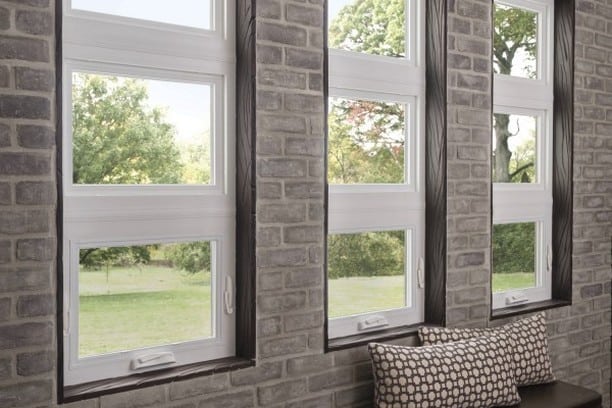
Mobile Home Windows Maintenance
Mobile home windows protect your home from weather and help regulate the temperature inside your home. Mobile Home Sell suggested checking your home’s level every 6 months. If they are not maintained properly, they can become damaged quickly. Here are some tips to help you keep your mobile home windows in good condition:
- Inspect them regularly for signs of damage or wear.
- Clean them regularly with warm soapy water and a soft cloth to keep them free of mold or mildew.
- Use window screens! The less air that gets in, the better it is for your home.
- Replace any cracked glass that can cause leaks and water damage inside your home immediately.
- Seal any holes or gaps between your windows and walls with caulk or foam—even if they’re small ones! That way, air won’t be able to sneak its way into your home through these spots.
Mobile Home Windows Maintenance for Different Weather Conditions
Mobile home windows can be a challenge to keep in good condition, especially when you’re dealing with the weather. Here are some tips for keeping your mobile home windows in tip-top shape:
- If you live in an area that gets a lot of rain, make sure to check for leaks around your windows and replace them if necessary.
- If you live in an area with lots of snow, consider putting up storm windows. This will help protect your window frames from being damaged by ice.
- If you live in an area with high winds, ensure polycarbonate or aluminum window screens are installed on your mobile home windows. They’re more durable than regular screens and will last longer as well.
- If you’re traveling during the winter months and are worried about ice buildup on your windows, consider taking some WD-40 or silicone spray to apply before driving off. This will help prevent frost buildup so that it doesn’t damage any of your mobile home’s exterior walls.
Conclusion
We hope this article has given you a better idea of what to look for in your new mobile home windows. There are lots of options out there, and we’re sure you’ll find the perfect ones for your needs!


